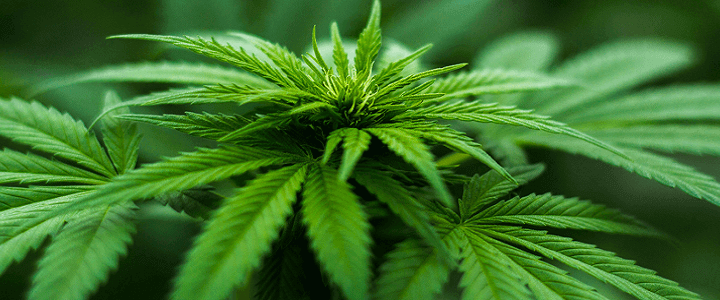Relief from joint pain, insomnia, PTSD, and even cancer—growing numbers of U.S. consumers attest to getting these and other benefits from the cannabis-based compound known as CBD oil. The extract is flourishing in mainstream markets, making inroads among customer bases of all ages and backgrounds. Elected officials across the country are largely on board, as well: As of now, 46 out of 50 states permit its sale and use. And while federal law still officially prohibits CBD oil along with marijuana, recent developments in our nation’s capital suggest that the federal government may soon follow the states and change its laws in CBD oil’s favor.
What is CBD?
CBD, short for cannabidiol, is a compound that flows within the seeds, stalks, and buds of the marijuana plant and its close relative, the hemp plant. Most of the CBD products in U.S. markets come from hemp. This is partly because hemp plants have much higher concentrations of CBD—and conversely, much lower concentrations of THC, the chemical that causes marijuana users to feel “high.”
It’s also because many more U.S. states allow hemp. As of now, 41 states have passed laws related to defining and authorizing industrial hemp production, whereas only 10 states have legalized the commercial growing and selling of marijuana. And of the 46 states that now allow CBD oil, 17 of them are ones that still outlaw use of marijuana for even medicinal reasons.
What’s the difference between marijuana and hemp? The most fundamental one is THC concentration. Federal law designates a plant as hemp if its THC level is no more than 0.3% per dry weight. Any higher than that, and it’s marijuana.
However, both marijuana and hemp are still prohibited under federal law. The only difference is degree. A 2014 law, the Agricultural Act, authorized states to start growing hemp under closely supervised “pilot programs,” provided that they use the hemp exclusively for research purposes. Making commercial products with it remained a no-no.
Commercial hemp products remain officially illicit to this day. And that includes hemp-based CBD oil.
Thus, as of June 2017, the Drug Enforcement Administration was warning businesses that sell CBD products to cease and desist or else face prosecution. And DEA spokesperson Rusty Payne told Vice earlier this year that CBD oil is “absolutely illegal.” Payne said that if CBD-oil users aren’t getting arrested right now, it’s only because “we’ve got bigger fish to fry. We are in the midst of an opioid epidemic” and that the CBD products you might find on your local store shelves or online are being “tolerated” by DEA agents but are by no means DEA-approved.
As such, determining if a given crop is hemp or marijuana basically means dubbing it either “sort-of illegal” or “totally illegal.” Either way, any CBD oil product obtained from that plant will run afoul of federal drug statutes. This is despite any pro-CBD statute your state may have passed.
Do you have a security clearance? Or want one? If your answer to either question is yes, CBD oil is not for you.
CBD Legalization Soon to Come?
The laws prohibiting CBD might not be around too much longer, however. A bipartisan group of senators led by Majority Leader Mitch McConnell (R-Ky.) have authored a bill, the Hemp Farming Act, to make hemp fully legal nationwide. One of McConnell’s fellow Kentucky Republican lawmakers, Rep. James Comer, has introduced a similar bill in the House. Comer, who makes no secret of using CBD oil himself—he swears that it eliminates his joint pain—is optimistic that the bill will pass by the end of the year.
Even the DEA seems to be evolving on the issue. In September, the agency removed FDA-approved prescriptions drugs that contain CBD from its Schedule 1 list. It still frowns on the wider market of non-prescription CBD oil products, but as agency spokesman Payne noted above, it’s also not putting much effort into stopping them.
In the Meantime
CBD oil clearly has made inroads even in political circles and demographics that aren’t generally pro-marijuana. Consumers and lawmakers alike are drawing clear lines of distinction between the real health harms that marijuana poses, and the potential health benefits that hemp-derived CBD oil may offer.
And in a not-too distant future—maybe even this month, if Comer has his way—that widespread support may succeed in establishing CBD oil use as fully legal. In the meantime, however, the law is what it is. So, if you’re looking for a remedy for your arthritis, you’d best stick to the ones that are FDA- and DEA-approved.




